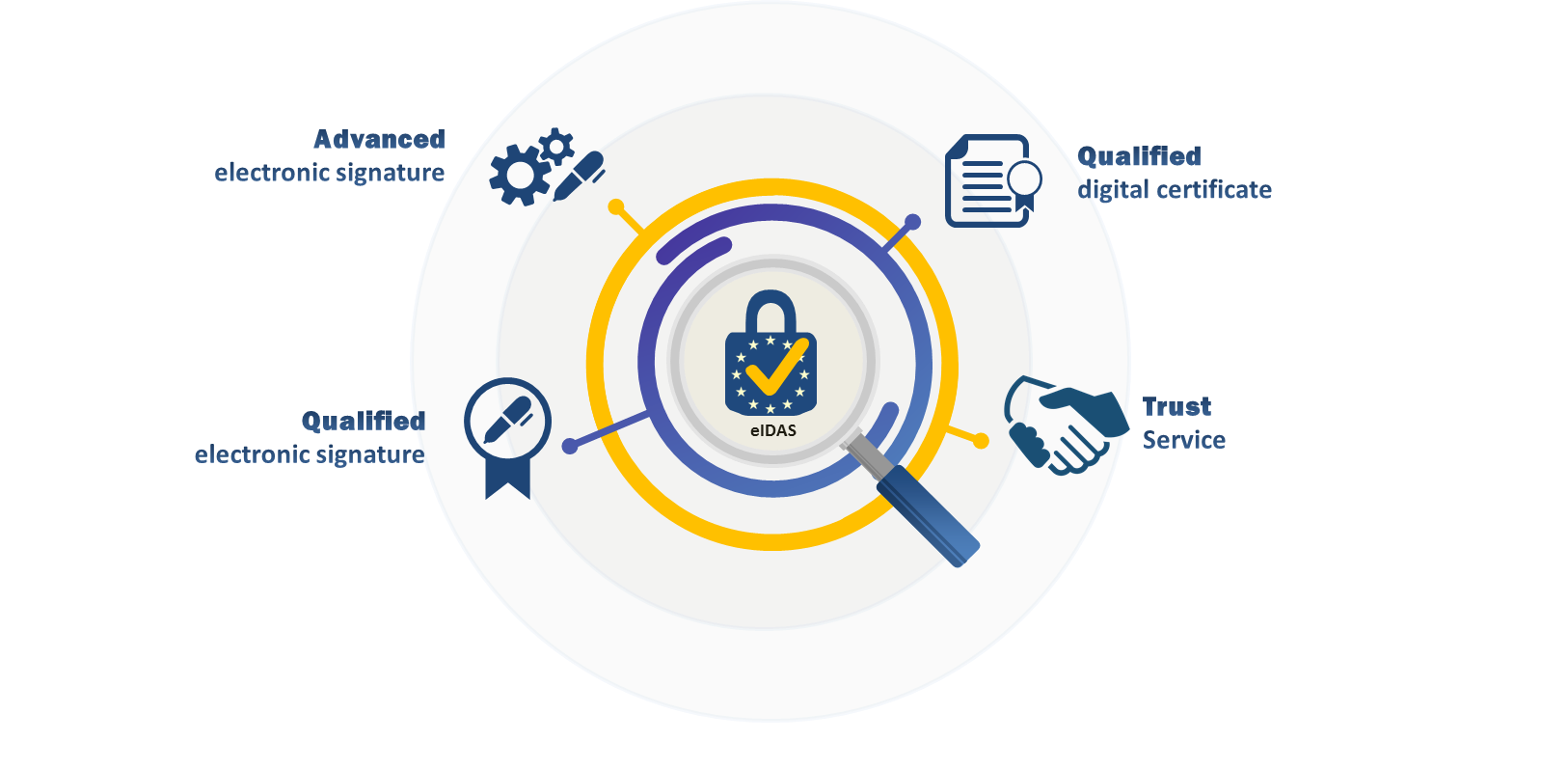Submitted by Anonymous on
Authors: Juan Carlos Perez & José Crespo
If you handle Online Transactions in the European Market, the eIDAS is big news. The, European Union’s Electronic Identification and Trust Services Regulation (eIDAS) has been established to help the Digital Single Market for secure electronic commerce simplifying and standardizing the digital IDs and signatures across Europe.
What is eIDAS?
The eIDAS regulation is a unique and standardized regulation that applies over all EU member states and it aims to enhance security trust in cross-border electronic transactions between businesses, citizens and public authorities by using the electronic identification (eID). In this way, it provides a consistent legal framework for electronic identities and signatures processes at last.

(Image: Regulated aspects in electronic transactions, Source: own)
What are the benefits of eIDAS?
Any company operating with electronic business transactions in Europe should ensure they are complying with the eIDAS regulation, but… What are the benefits?
- More security and trust in cross-border electronic transactions
- eIDAS will allow transparency and standardization in the market
- Big reduction of red tape for business, increasing profits. For example, in Estonia you can set up a limited liability company in just 18 minutes using an eID complying with eIDAS!
- Guarantee accountability
- Expanded number of services accessible for European citizens
How will LEPS help your Business?
The main objective of “Leveraging elD in the Private Sector” (LEPS) project is to promote the use and uptake of eID in the private sector,
LEPS project will demonstrate the usability of eIDAS specification in the private sector, contributing to connect the IT infrastructures of the online services provided by private services providers, with the eIDAS eID common services.
Namely the LEPS project will enable existing services from Postal and Financial domains in Greece and Spain to use the paneuropean eIDAS infrastructure for cross-border electronic identification and authentication, while complying with eIDAS specifications and regulations.

One of the main outcomes the LEPS project will release to the private sector will be the technology and mechanisms for an easy integration of the online services into the eIDAS infrastructure. In this way a European citizen can get access to protected online service offered by a service provider from a different country of the citizen country.
Also LEPS project will provide supporting tools such as a mobile app for authentication-attributes delivery using technologies as NFC embedded into eID card.
As LEPS project will demonstrate a Spanish citizen will be able to access an online service offered by the Greek Post providing the Spanish eID NFC card as credentials for authentication and identification purposes.
As can be envisage a private online service from everywhere in Europe can offer services to all European citizens holding an eID card issued by the trusted authorities from European countries. The service provider can offer to her/his clients different services which would require a strong authentication to access.
And all of this thanks to LEPS.

